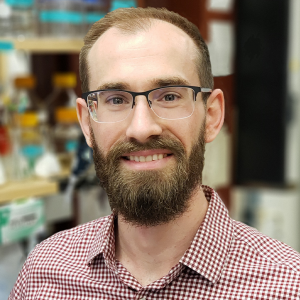Daniel Woldring
 Contact
Contact
woldring@msu.edu
Office: 517-353-2349
IQ DIVISION – Chemical Biology
Departmental AFFILIATIONS
About
Daniel Woldring is an assistant professor in the chemical engineering and materials science department. His research expands on the fundamental understanding of protein-protein interactions as a means of exploring complex biological systems and develop novel, effective therapeutics. Dr. Woldring completed his bachelor’s in chemical engineering at Michigan Technological University. Prior to graduate school, he worked in industry as a process engineer at Marathon Petroleum (Detroit, MI). Dr. Woldring completed his PhD in chemical engineering at the University of Minnesota. During this time, he gained expertise in protein engineering and pursued interdisciplinary projects which focused on protein stability and library design, molecular imaging of cancer biomarkers, high-throughput sequence analysis software, and exploring the behavior of metastatic tumors. Later, as a postdoctoral fellow for the Howard Hughes Medical Institute at Brandeis University, his work explored how ancestral enzymes can efficiently evolve under harsh conditions within continuous growth bioreactors.
The Woldring Lab
The Woldring lab focuses on the discovery and fundamental study of high performance binding proteins having utility as precision medicines, disease diagnostic agents, and fundamental research probes. There is a critical need for such reagents that facilitate the detection and treatment of challenging diseases; however, the rate at which they are developed by the scientific community fails to meet this demand. To address this, our research combines the power of high-throughput yeast surface display selection methods with precise structural and dynamic information. We can then leverage simulations of protein interactions to guide library design thereby improving the likelihood of success in protein discovery as well as to empower a feedback loop between theory and experiment to elucidate protein evolution.
Current projects include: Evolving highly versatile binding proteins using ancestral sequence reconstruction; inducing conformational changes in GPCRs via small engineered ligands; elucidating protein-protein interactions by library selection and simulated docking.

